Urology – treatment in the Best Hospitals
Here you will find most technologically advanced urological hospitals in the world
Focus of treatment:
- Adrenal cancer
- Benign prostatic hyperplasia (bph)
- Bladder cancer
- Bladder neck obstruction
- Bladder stones
- Cancer of the bladder neck
- Chronic prostatitis
- Clear cell renal carcinoma
- Cystitis
- Epididymitis
- Erectile dysfunction
- Fournier gangrene
- Hormonal imbalance in teenage male
- Hydrocele
- Hypogonadism (testosterone deficiency)
- Hypospadias
- Kidney abscess
- Kidney cancer (renal cell cancer)
- Kidney stones with hydronephrosis
- Male infertility
- Malposition testis (undescended testicle, cryptorchidism)
- Metastatic prostate cancer
- Penile genital warts
- Penile hypoplasia (small penis)
- Penis cancer
- Penis fractures with urethral rupture
- Perinephric abscess
- Pheochromocytoma
- Phimosis
- Prostate cancer
- Prostate stones
- Rupture of the bladder
- Spermatocystitis
- Stress urinary incontinence (men)
- Stressful urinary incontinence (women)
- Testicular abscess
- Testicular cancer
- Testicular embryonal carcinoma
- Testicular seminoma
- Testicular teratoma
- Testicular torsion
- Testicular yolk sac tumor
- Trauma of the prostate gland
- Ureteral cancer
- Ureteral polyp
- Ureteral stricture
- Urethral fistula
- Urethral polyp
- Urethral prolapse
- Urethral rupture
- Urethral stones
- Urethral stricture
- Urinary bladder diverticulum
- Urolithiasis
- Varicocele
- Vas deferens inflammation
- Vesico-enteric fistula
- Vesico-vaginal fistula Show more

Department of Adult and Pediatric Urology, Andrology
The Department of Adult and Pediatric Urology, Andrology offers the full range of services in the areas of its specialization. Men and boys with diseases of the reproductive system can be diagnosed and treated in the medical facility. Doctors also treat infertility and erectile dysfunction. Medical care is provided to men and wo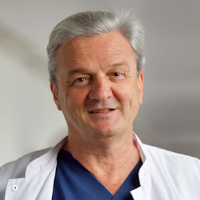





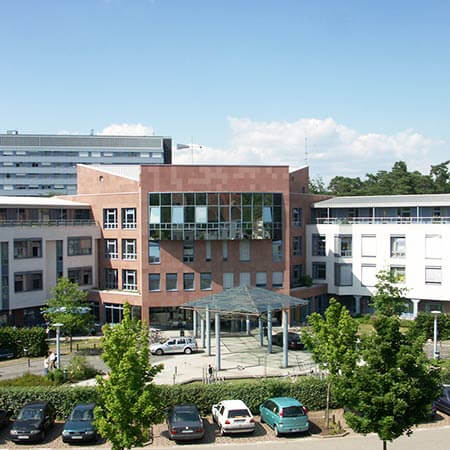
Department of Adult and Pediatric Urology, Andrology
The Department of Adult and Pediatric Urology, Andrology provides the full range of services in the fields of its competence, meeting the high standards of modern university medicine. The department specializes in the diagnostics and treatment of diseases of the kidneys, adrenal glands, ureters, bladder, and urethra. The medical


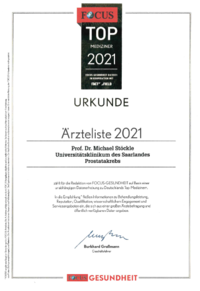
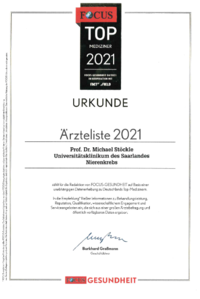
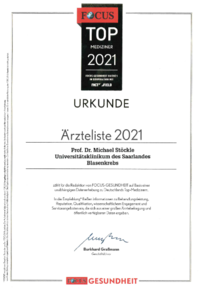
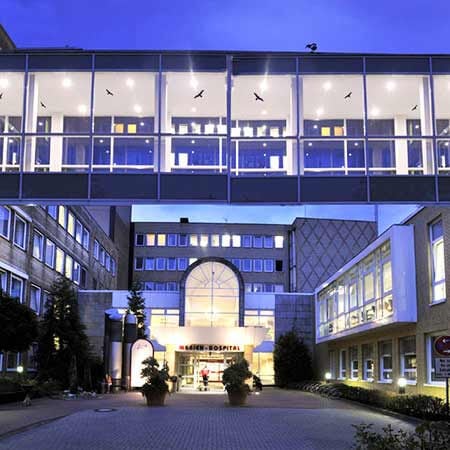
Department of Adult and Pediatric Urology, Andrology
The Department of Adult and Pediatric Urology, Andrology offers the full range of diagnostic and therapeutic services for patients with diseases of the urinary system and for men with pathologies of the reproductive system. The team at the medical facility also admits children and adolescents with urologic diseases. The departme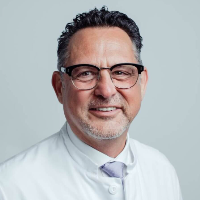


Diseases of the urinary tract occupy a special place in the structure of general morbidity. As a rule, pathological health conditions emerge gradually and very often occur under the guise of diseases of other organs and systems. Moreover, patients turn to urologists for medical help amid the deterioration of the health condition, when the clinical manifestation becomes unbearable. Medically, the relevance of the problem is emphasized by the frequent complications of the underlying disease.
Content
- Urology treatment principles
- Urological treatment methods in Europe
- Bladder cancer treatment in Europe
- Kidney cancer treatment in Europe
- Prostate cancer treatment in Europe
- The cost of treatment in European hospitals
Urology treatment principles
Urology is a field of medicine dealing with diagnostics, treatment, and prevention of urinary tract pathologies and male genital system diseases such as:
- Oncology in urology.
- Andrology (treatment of male genital diseases).
- Treatment of urinary tract lesions in men and women.
- Pediatric urology.
Oncological diseases such as prostate cancer and bladder cancer are among the most common malignant neoplasms treated in European hospitals. You can read more about their treatment in Europe in the relevant articles on the Booking Health website.
Common urological diseases also include infectious and inflammatory pathologies such as prostatitis and cystitis (inflammation of the bladder). In cases where these diseases take a persistent chronic course, the use of modern therapies is needed, which only highly developed countries can medically provide. Therefore, patients from all over the world quite often come to Europe to treat these seemingly harmless, but dangerous health conditions with their complications.
In addition, urology clinics in Europe successfully treat diagnoses and clinical manifestations as:
- Prostate adenoma.
- Varicocele.
- Erectile dysfunction.
- Male infertility.
- Urinary incontinence, overactive bladder, and painful urination.
- Cryptorchidism.
- Phimosis.
Urological diseases also often include urolithiasis (kidney stones), pyelonephritis (kidney inflammation), and other pathologies affecting the kidneys.
Urological treatment methods in Europe
European hospitals use modern, highly effective therapies to alleviate the health condition of patients. European urologists use therapies with medication, surgery, endoscopic, and minimally invasive procedures.
Conservative therapy of urological health conditions consists of prescribing drug therapy. As a rule, anti-inflammatory, antibacterial, antihypertensive, and hormonal agents are prescribed.
Surgical methods in urology are used much less frequently today. Open surgical interventions are performed in cases of malignant neoplasms or the presence of contraindications for minimally invasive procedures. Medically, endoscopic methods are the mainstay of treatment of both acute and chronic urinary tract diseases. The following endoscopic surgeries are most frequently performed in European hospitals:
- Laparoscopic prostatectomy (in cases of malignant neoplasms of the prostate).
- Minimally invasive surgical interventions to remove kidney cysts.
- Minimally invasive open retroperitoneoscopic nephrectomy.
- Endoscopic treatment of ureteral strictures.
- Transurethral endoscopic interventions (in cases of prostate, urethral, and bladder diseases).
This is by no means a complete list of surgical interventions performed in European hospitals. A wide range and high quality of medical services and good treatment results account for the high percentage of patients undergoing treatment in Europe.
Medically and statistically, over 100 thousand urologic tumors are diagnosed every year in medical centers in Europe. Although this number is constantly increasing, qualified urologists can save the lives of many patients.
Many European hospitals house research institutes actively studying and improving new diagnostic and treatment methods in urology. Urologists of research departments conduct studies in genetics, epidemiology, innovative molecular diagnostics, and experimental therapy. Every year, one of the largest scientific congresses is held in Europe and is dedicated to the treatment of urological diseases.
Bladder cancer treatment in Europe
Bladder cancer is one of the most serious diseases. And, medically, every year it is diagnosed in 25,000 patients in Europe. The high qualification level of European urologists makes it possible to remove about 70% of cancerous tumors through cystoscopy, which is the most sparing treatment method. Urologists take all possible measures to not only prolong the life of patients but also to preserve its quality. Even when rare sarcomas are detected, European urologists can prolong the life of almost 60% of patients.
For the treatment of functional health conditions, European urologists prefer not to use surgical and drug treatment methods. Many diseases of this type are based on neurogenic or psychogenic factors. Therefore, patients with such problems are offered help from psychologists, individual pelvic muscle training, and other unique procedures. Medication or surgical treatment of functional health conditions is carried out only in situations where other methods of medical care have failed to produce a positive result.
Kidney stone disease is another common reason for seeking medical help at a urology hospital in Europe. To date, European urologists practice several possible ways of treating this health condition:
- Extracorporeal shock wave lithotripsy.
- Minimally invasive endoscopic stone lithotripsy.
- Percutaneous cystolithotomy.
Besides, urologists efficiently cope with different types of cystitis (even with chronic and hard-to-correct diseases), kidney malformations, and other bladder pathologies.
Among the most common surgical interventions performed by urologists on the bladder are:
- Cystoscopy.
- Cystectomy or removal of the bladder.
- Endoscopic bladder stone crushing.
- Implantation of TVT slings to correct urinary incontinence
Kidney cancer treatment in Europe
Urologists at European hospitals treat a variety of kidney disorders, including kidney oncology, kidney stones, developmental abnormalities, and many others.
European urologists diagnose almost 15,000 patients with kidney cancer annually. Doctors most often have to deal with renal cell carcinoma. The main method of treating kidney cancer is surgery. Thanks to the high professionalism of European urologists, a kidney can often be saved in the process of tumor removal. And if the cancer is detected at an early stage of development, recovery occurs in 98% of patients.
As for developmental abnormalities, it is believed that such conditions are the most common malformations of internal organs in humans. European urologists have considerable experience and successfully correct various anomalies using surgical methods.
As for kidney stone disease, it is often an indication for surgical intervention. European doctors successfully remove kidney stones with sparing treatment methods, for example, with the help of extracorporeal shock wave therapy.
Even kidney transplantation has become a routine procedure for European doctors. About 2,500 such surgical interventions are performed annually in European hospitals. Eighty percent of these end up with successful engraftment and the absence of transplant dysfunction. This is a very high indicator, which can only be reached because of highly qualified doctors, innovative technologies, and modern medications.
Urology treatment in Europe also includes highly professional therapy of renal artery stenosis, various forms of renal insufficiency, and kidney diseases of infectious etiology.
Prostate cancer treatment in Europe
Prostate cancer is the most commonly diagnosed cancer in men throughout the world. According to scientific calculations, over 65,000 cases of this disease are diagnosed in European medical centers alone each year. Therefore, European urologists strongly recommend that all men over 45 undergo annual check-ups focused on the condition of the prostate, lymph node, and external genitalia.
Many patients also go to European urologists for diagnosis and treatment of prostatitis. It is one of the most frequent urological diseases among men of all ages. Another very common pathology of the prostate gland is an adenoma, which is also known as benign hyperplasia. This disease is detected in 50% of men over the age of 60 years. And in patients over the age of 80, this pathology is diagnosed in 90% of cases. Medical specialists in Europe have the most innovative and maximally effective methods of therapy for prostate adenoma. The unique laser treatment systems of the latest generation are extremely popular among doctors and patients.
Moreover, many people need to see a urologist about abnormal development of the prostate as well as a spermatic duct. Doctors diagnose and eliminate pathologies of seminal vesicles and various diseases of infectious etiology.
The cost of treatment in European hospitals
Medically, urology studies the causes, mechanism of development, diagnosis, therapies, and prevention of diseases of the urinary tract, genital system, and other pathological processes in the retroperitoneal space. Specialized clinics and departments of major European hospitals accept patients from all over the world for the treatment of urinary diseases. A high level of professionalism, modern diagnostic and therapeutic equipment, a high percentage of recovery after therapies, and the possibility of complex rehabilitation in Europe attract many patients with diseases of the urinary tract of different treatment complexity. Such an approach makes it possible to improve the health of patients even with chronic health conditions. Specialists of the European hospitals treat cancers of the prostate, bladder, and kidneys as the most common health conditions diagnosed in the field of urology.
The cost of treatment in Europe may vary depending on specific factors (patient's health condition, list of necessary procedures, use of diagnostic equipment, type of surgical intervention, etc.) and is determined individually each time. Therefore, the answer to the question "How much is the cost of treatment in Europe?" will vary from person to person.
To find out the prices for treatment in Europe, you can contact Booking Health directly and make it possible to determine the approximate cost of treatment.
To contact Booking Health regarding the prices for treatment in Europe, and information about the clinic and which urologist are the best options in your clinical case, fill in the request form on the Booking Health website.
Authors: Dr. Nadezhda Ivanisova, Dr. Sergey Pashchenko

